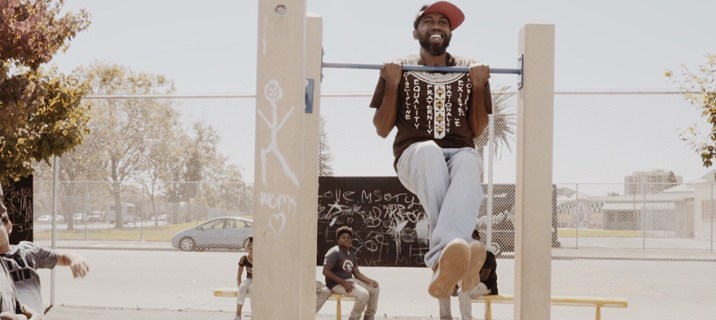Imagine walking into a school every day and being taught by someone who looks like you. Imagine that person shares your upbringing, the music you listen to, or simply represents a living roadmap to the future—a walking embodiment of success.
Now, what if this educator rigorously challenged you every day to tap into your greatness, exposing you to literature that broadened and enhanced your cultural understanding of who you are?
This was a dream of mine when I was younger.
However, as a student I was often placed in classes that were taught by teachers who had absolutely no clue what it meant to be a young African-American male growing up in Oakland. They spewed academic cultural prejudice while undermining my intellect. They looked at me from a deficit lens. And they looked nothing like me!
That is, until I reached high school.
I remember at the beginning of my sophomore year, my friend told me he was taking a really fun class and learning so much in such a short amount of time. He also mentioned that the class was only offered before school. I thought about it that night and decided to observe the class the following morning.
Upon entering that class, I could feel that there was something really different about it. A young African-American male teacher greeted us at the door and then followed with a brief check-in. There was music being played and everyone genuinely looked excited about being educated. At the start of the class, everyone stood up and recited a powerful affirmation.
THIS WAS THE VERY FIRST TIME I EVER FELT GOOSEBUMPS INSIDE A CLASSROOM.
This was the very first time I ever felt goosebumps inside a classroom.
The students sat attentively and the lesson began. I had no prior knowledge of the information being covered during this class, yet I was mesmerized by the content. Seeing someone who represented me in an academic setting had a profound effect on the way in which I viewed myself. In a time period during which I was fishing for so many answers, I can not express how impactful it was to witness a Black man teaching.
MY JOURNEY TO BECOMING A BLACK MALE EDUCATOR
Years later I find myself in a web of infinite possibility. I have been given the greatest opportunity in the world, to teach young African-American men during the academic day. Through the Office of African-American Male Achievement (AAMA) within the Oakland Unified School District (OUSD), I have been able to positively influence hundreds of young African-American men to continue their pursuit of higher education.
Upon joining AAMA, what immediately stood out to me was that I was surrounded by other African-American male teachers. Already this was very rare, since Black men make up only 2 percent of all teachers within the United States. Also, these African-American male teachers prescribed to a completely different pedagogy—one that involved encouraging, engaging and empowering students on a daily basis to reach towards their greatest potential.
By creating student-centered rituals in the classroom—such as handshakes and class affirmations—the pathways were wide open for establishing healthy relationships with the students. Not to mention, the academic discourse these educators engaged in with their classes was designed to dramatically improve academic performance and ultimately shift life outcomes.
This program is beyond important because it provides a consistent and healthy lens through which African-American young men can see themselves as they develop. Particularly for those young men who may not already have a strong male presence in their lives, this course stands as a beautiful opportunity to explore manhood with the principles and academic rigor necessary to evoke growth.
I’ve found when we set the bar high for these young Kings, they excel beyond our wildest dreams simply because we love them and believe in their innate greatness. We are the architects of the destiny we wish to see within our community, and this is the power and privilege I have every day as a facilitator within the African-American Male Achievement Program.

